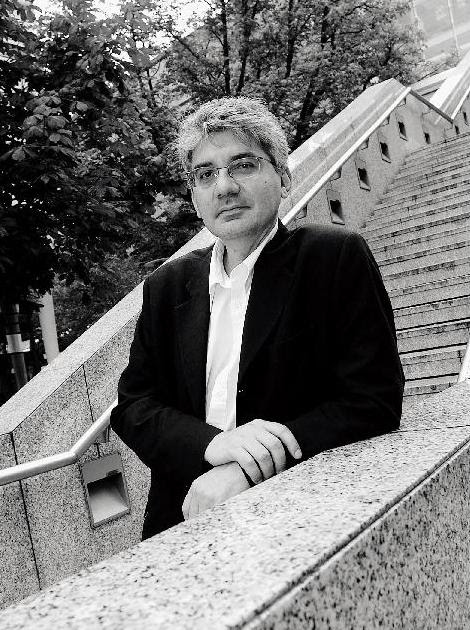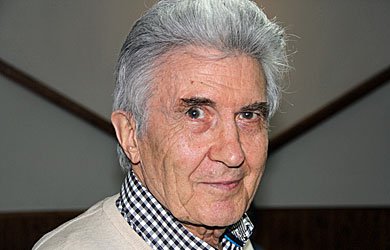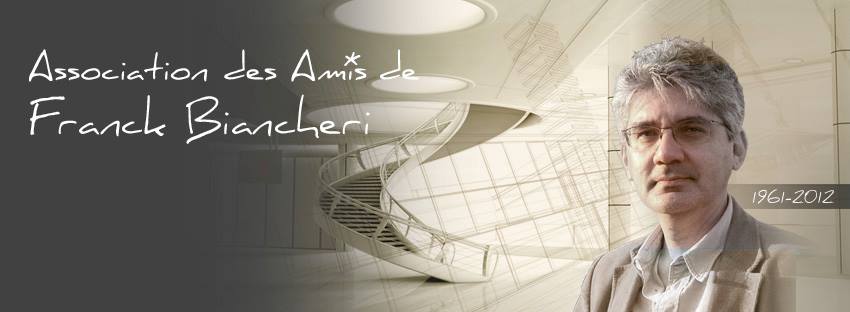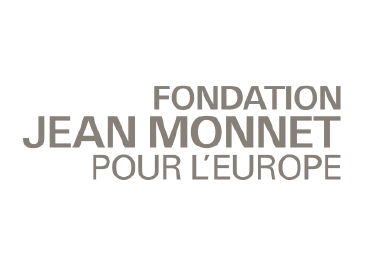This article was written by Félix de la Fuente Pascual, Secretary of political action of CILUS and member of the Franck Biancheri Network. It was published in Madrid Actual.
Among the possible situations, or scenarios as they are called now, that the European Commission presents to us about the current crisis in the European Union, one of the options would be to do nothing and let the situation improve on its own, a behaviour that’s quite habitual among Spanish politicians.
The second scenario would be to destroy the EU or to return to nationalism, that is to say, to go back a 100 years and lose everything that has been done up to now; whether in terms of social conquest or peaceful coexistence between Europeans. Another option, and there are still other options, would be to take a step towards a political Union, at least between the countries of the EU that so desire. A multi-paced Europe therefore. This is in fact something that already exists: for example, the Europe of the Euro is advancing at a different speed within the EU, but what has always existed so far is a real will of Political Union.
The ordinary citizen lacks quietude and appreciation in order to decide which of the solutions outlined above would be the best for him. That does not surprise us. After many decades in which politicians have used Brussels to absolve themselves of their mistakes (corruption, waste, etc.), we cannot really ask our citizens to have sympathy for the Political Union project. The waste being perhaps even more serious than the corruption since it is even more generalized than the latter. We have been educated to be nationalist, with all the connotations implied by this term: egoism, narrowness of spirit, to think ourselves superior, lack of solidarity, etc. etc. We have been trained contrary to the characteristic values of European integration and living democracy. With the EU, a new degree of democracy has arrived in Spain. Democracy and the EU are interrelated and united concepts. Our loss of democracy can mean the loss of the EU, and vice versa, the disintegration of the EU may imply the disintegration of our democracy.
Poor us, we want to believe that our national or regional policies lose sovereignty, but we also lose it as citizens. What we want is an effective government and we do not care if the president of the government is Basque, Andalusian, French, Italian or Galician. What is important is that the government is for the citizens and not for the political parties. We are told “the more European integration we have, the less the Spanish will have sovereignty”. Unfortunately, political parties have long robbed us of sovereignty, which according to the Constitution belongs to us citizens. At the same time, our government and our policies, and the same can be said of the policies and governments of other EU member states, do not have the least autonomy or sovereignty to face the current global problems. Not because Brussels has kidnapped them, but because in a globalized world, having the EU member states separated from one another does not bode well.
Let no one try to deceive us. When I hear that Brussels is taking away sovereignty, it reminds me of the famous “Spain robs us” (“España nos roba”). Do we really want Washington or Moscow to govern us instead of Brussels? Whether the multinationals are imposing their rules as they already do or are trying to do so?
European integration is at risk, because our democracy is in danger. Populist and xenophobic parties can annihilate European integration, but they can especially destroy our democracy. The passivity and lack of reaction of political parties is not an excuse for us citizens not to seek alternatives. We have also been passive for too long, in tolerating that we have been robbed of sovereignty.
The Spaniards and the Portuguese, accompanied by the Mediterranean countries, Germany and France, are the most inclined to political integration. And yes, despite education and training given in Spain, we always bet on European integration. Yes, education for democracy begins at school, a sector that has the habit of being the first to be affected by budgetary restrictions. Europe is in danger, because our democracy is in danger. And not the other way around.Cet article a été écrit par Félix de la Fuente Pascual, Secrétaire d’action politique de CILUS et membre du Franck Biancheri Network. Il a été publié dans Madrid Actual.
Parmi les situations possibles, ou scénarios comme on le dit désormais, que nous présente la Commission Européenne concernant la crise actuelle de l’Union Européenne, une des options consisterait à ne rien faire et à laisser la situation s’améliorer d’elle-même, un comportement habituel chez les politiques espagnols.
Le second scénario consisterait à détruire l’UE ou à revenir au nationalisme, c’est-à-dire à revenir 100 ans en arrière et perdre tout ce qui a été fait jusqu’à aujourd’hui; que ce soit en ce qui concerne les conquêtes sociales ou la cohabitation pacifique entre européens. Une autre option, et il en existe encore d’autres, serait de faire un pas vers une Union Politique, au moins entre les pays de l’UE qui le désirent. Une Europe à plusieurs vitesses donc. C’est en réalité quelque chose qui existe déjà : par-exemple, l’Europe de l’Euro avance à une vitesse différente au sein de l’UE, mais ce qui a toujours existé jusqu’à présent c’est une volonté réelle d’Union Politique.
Le citoyen ordinaire manque de sérénité et d’éléments d’appréciation pour pouvoir décider laquelle des solutions exposées ci-dessus serait la meilleure pour lui. Cela ne nous surprend pas. Après de nombreuses décennies au cours desquelles les politiques ont utilisé Bruxelles pour se déculpabiliser de leurs erreurs (corruption, gaspillages etc), on ne peut pas vraiment exiger de nos citoyens qu’ils aient de la sympathie pour le projet d’Union Politique. Le gaspillage étant d’ailleurs peut-être encore plus grave que la corruption puisqu’il est encore plus généralisé que cette dernière. Nous avons été éduqués pour être nationalistes, avec toutes les connotations sous-entendues par ce terme: égoïsme, étroitesse d’esprit, nous nous pensons supérieurs, manque de solidarité, etc etc. Nous avons été formés de façon contraire aux valeurs caractéristiques de l’intégration européenne, et de la démocratie vivante. Avec l’UE, un nouveau degré de démocratie est arrivé en Espagne. Démocratie et UE sont des concepts intimement liés et unis. Notre perte de démocratie peut supposer la perte de l’UE, et vice-versa, la désintégration de l’UE peut supposer la désintégration de notre démocratie.
Pauvres de nous, on veut nous faire croire que nos politiques nationaux ou régionaux perdent la souveraineté, mais nous la perdons aussi nous citoyens. Ce que nous voulons c’est un gouvernement efficace et nous nous fichons de savoir si le président du gouvernement est Basque, Andalou, Français, Italien ou de Galice. Ce qui est important c’est que le gouvernement soit pour les citoyens et non pas pour les partis politiques. On nous dit « plus on aura d’intégration européenne, moins les espagnols auront de souveraineté ». Malheureusement, cela fait bien longtemps que les partis politiques nous ont volé la souveraineté qui selon la Constitution nous appartenaient à nous citoyens. En même temps notre gouvernement et nos politiques, et on pourrait dire la même chose des politiques et gouvernements des autres Etats-membres de l’UE, n’ont pas la moindre autonomie ni souveraineté pour affronter les problèmes actuels mondiaux. Non pas parce que Bruxelles leur a enlevé, mais parce que dans un monde globalisé, avoir les Etats-membres de l’UE séparés les uns des autres ne présage rien de bon.
Que personne n’essaye de nous tromper. Lorsque j’entends que Bruxelles nous enlève la souveraineté, cela me rappelle le fameux « l’Espagne nous vole » (« España nos roba”). Voulons-nous vraiment que ce soit Washington ou Moscou qui nous gouverne au lieu de Bruxelles ? Que ce soit les multinationales qui imposent leurs règles comme elles le font déjà ou essayent de le faire ?
L’intégration européenne est en danger, parce que notre démocratie est en danger. Les partis populistes et xénophobes peuvent anéantir l’intégration européenne, mais ils peuvent surtout anéantir notre démocratie. La passivité et le manque de réaction des partis politiques ne sont pas une excuse pour que nous citoyens nous ne cherchions pas des alternatives. Nous avons aussi été passifs pendant trop longtemps, en tolérant qu’on nous vole la souveraineté.
Les Espagnols et les Portugais, accompagnés des pays Méditerranéens, de l’Allemagne et de la France, sommes les plus enclins à une intégration politique. Et oui, malgré l’Education et la Formation donnés en Espagne, nous parions toujours sur une intégration européenne. Oui, l’éducation à la démocratie commence à l’école, ce secteur qui a pour habitude d’être le premier touché par les restrictions budgétaires. L’Europe est en danger, parce que notre démocratie est en danger. Et non pas l’inverse.






